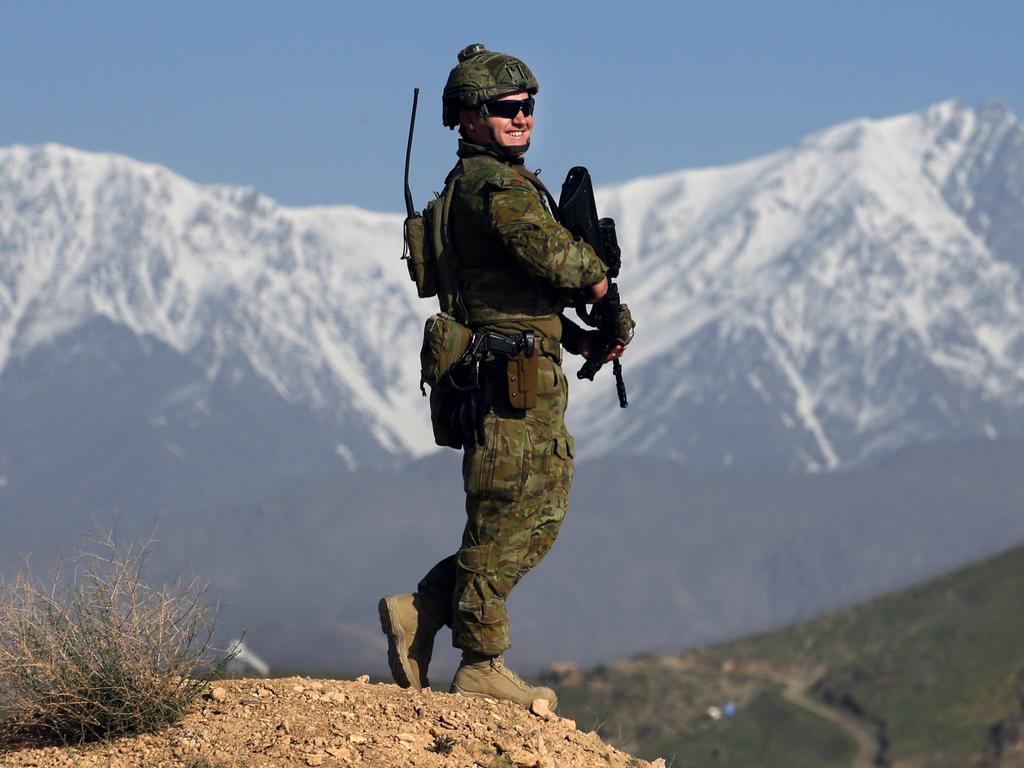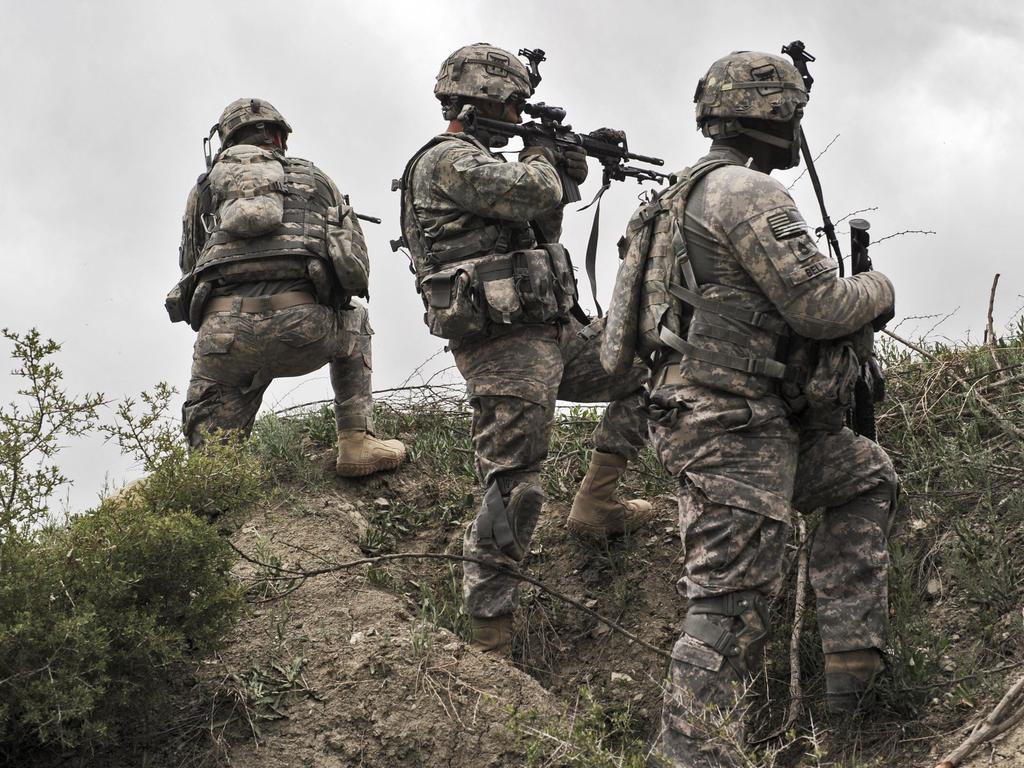Joe Biden faces a battle on many foreign fronts


Powell endorsed the decision and downplayed concerns about the risks it poses. Then he compared it to the precedent set by the Soviet Union, which withdrew its forces from the country after a long war in 1989. Speaking to the Washington Post he said, “They got tired, and they marched out and back home. How long did anybody remember that?”
There are multiple answers to that question, and none of them makes the point Powell seems to think it does. For one thing, many historians draw a fairly straight line between the Soviets’ failure in Afghanistan and the collapse of the USSR itself not much more than a year later. The humiliating retreat brought down a superpower. People remember that.

No one’s suggesting a US departure from its own long struggle in Afghanistan will result in the disintegration of America (some might say that process is already under way). But the larger objection to Powell’s curious historical citation is that the Soviet withdrawal is cemented into the consciousness of just about everyone who has practised foreign policy for the past few decades. It set in train events that led directly to the tragedy of 9/11 and the turbulent 21st-century world order it created.

This is not to defend the Soviets’ occupation and the brutal war they waged, but to point up the central strategic challenge that the Biden administration is grappling with in ending America’s longest war well short of conclusive victory: how to manage America’s burdensome commitments in a world of rising threats and diminishing American power.
The decision to leave by the symbolic 20th anniversary of the 9/11 attacks, a little later than Donald Trump’s initial proposed date of May 1, has produced a rare moment of bipartisanship in a nation that can’t agree on the time of day.
It has been welcomed and condemned by Democrats and Republicans alike. Jeanne Shaheen, a progressive Democratic senator from New Hampshire, denounced the decision. Ted Cruz, the conservative Texan who fancies himself a successor to Trump, applauded it.
I’m very disappointed in @POTUS' decision to set a Sept. deadline to walk away from Afghanistan. Although this decision was made in coordination w/our allies, the U.S. has sacrificed too much to bring stability to Afghanistan to leave w/o verifiable assurances of a secure future. https://t.co/OfHx3cmJX1
— Sen. Jeanne Shaheen (@SenatorShaheen) April 13, 2021
Meanwhile, Sen. Ted Cruz, a Republican from Texas, tells me that he’s glad the troops are coming home. “Bringing our troops home should not be taken as a sign that America will be any less vigilant,†Cruz said. https://t.co/t4iHQc8Ykf
— Lauren Fox (@FoxReports) April 13, 2021
Critics on both sides say the move not only abandons to the depravities of the Taliban the citizens of a country the US has pledged to protect for two decades. They say that, just as the Soviets left behind a powder keg that blew up in such devastating fashion, so this superpower retreat risks a new descent into chaotic volatility.
Lindsey Graham, another fierce Trump ally, said Biden had “paved the way” for another 9/11. “You have not ended the war, you’ve extended it,” he told him.
Sen. @LindseyGrahamSC on Afghanistan Troop Withdrawal: "With all due respect to President Biden,
— CSPAN (@cspan) April 14, 2021
you have not ended the war, you've extended it. You have made it bigger not smaller."
Full video here: https://t.co/muYPmzQVaApic.twitter.com/9vgzaK7F4K
But politicians, like generals, are unusually adept at fighting the last war. The Biden administration’s decision is an unstated but sensible acknowledgment of the evolving transformation of US strategic posture that began under the much-maligned Trump.
The balance of opportunity and challenge for the US today has shifted in an adverse way in the 20 years since its forces dropped into the mountains of Afghanistan. The confidence that underpinned the idea that the US could lead a willing coalition of allies to impose secure democracy anywhere it chose has been brutally shattered: undone by the catastrophe of Iraq; declining American authority; the fracturing of north Atlantic comity; the growing irrelevance of Europe; the loss of faith in the idea of a liberal world order; the cold sobering realities of Syria, Libya and Afghanistan itself; and above all, the rise of a rival superpower to the east that is much more threatening than the Soviet Union.

It’s true that the US commitment to Afghanistan has shrunk to a relatively small insurance policy against another outbreak of regional strife - a few thousand troops at the cost of perhaps $US10 billion a year, a fraction of a fraction of the nation’s defence budget. But that vastly underestimates the extent to which the needs of US interests in Kabul have skewed American diplomatic and security commitments.
It has led for example to two decades of warped, inconsistent and often counter-productive dependence on Pakistan. As Washington now surveys its larger obligations, is being hostage to an unreliable and volatile Islamabad really to be prioritised over a strategic embrace of India?
Will Ruger, a conservative foreign policy specialist who was nominated by Trump as ambassador to Afghanistan last year, capture the unexpected cross-party alignment on the new US foreign policy, praising the Biden decision. “We need to pursue a policy of realism and greater restraint in how we use force,” he told me. “That realism says, look, we should pivot to those questions that really matter for America’s security and America’s prosperity.”
Lessons learnt from history are often the wrong ones. The threats that confront the US are not the ones that led to or flowed from the September 11 attacks. On the borders of Ukraine, in the skies over Taiwan, in nuclear reactors inside Iran, the challenges to the complex system that America relies on for its security are gathering in number and intensity.
Painful as it is for Americans to watch as they become merely the latest great power to retreat, unvictorious, from Afghanistan, the risks of staying are much larger.
The Times







The most baffling rationale for the proposed withdrawal of US forces from Afghanistan announced by President Joe Biden this week came from Colin Powell, the former general and secretary of state, who was one of the architects of Washington’s post-September 11 strategy in the region.